
| Starting price | $150/month |
|---|---|
| Free trial | Yes |
| Free version | Yes |
Take control of your data and gain meaningful insights with the best data management software solutions. Streamline data processes, ensure data quality and maximize the value of your information assets.
Find the best value data management software on SaasGenius.
Looking for the best value data management software? In our list, you'll find the best data management software solutions that offer exceptional data organization, integration and management features.

| Starting price | $150/month |
|---|---|
| Free trial | Yes |
| Free version | Yes |
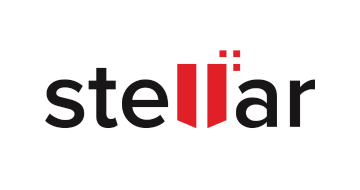
| Starting price | $299 |
|---|---|
| Pricing model | Mailboxes |
| Free trial | No |
| Free version | Yes |
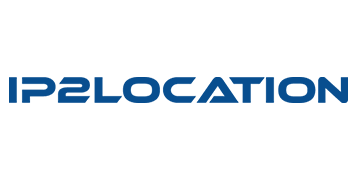
| Starting price | $49/year |
|---|---|
| Pricing model | Per Server, Subscriber based |
| Free Trial | Yes |
| Free Version | No |
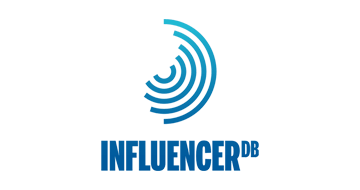
| Starting Price | €179/mo |
|---|---|
| Pricing model | Premium |
| Free Trial | Yes |
| Free Version | Yes |
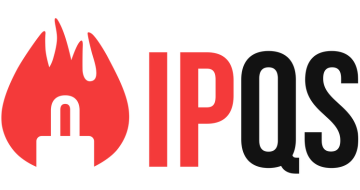
| Starting price | $20/mo |
|---|---|
| Pricing model | Subscriber based |
| Free Trial | Yes |
| Free Version | Yes |
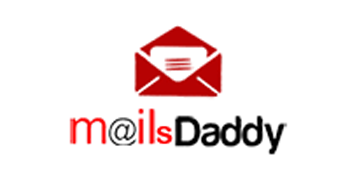
| Starting Price | $99 |
|---|---|
| Pricing Model | One Time License |
| Free Trial | Yes |
| Free Version | No |
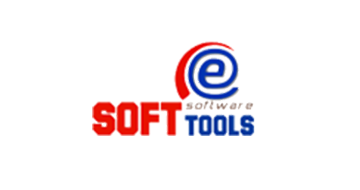
| Starting price | $29/year |
|---|---|
| Pricing model | Per 2 Computers |
| Free Trial | Yes |
| Free Version | No |

| Starting Price | $75/month (billed annually) |
|---|---|
| Pricing Model | Subscriber based |
| Free Trial | Yes |
| Free Version | Yes |
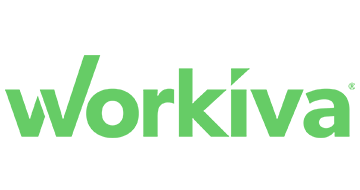
| Starting price | Contact for price |
|---|---|
| Pricing model | Subscriber based |
| Free Trial | Yes |
| Free Version | No |

| Starting price | $35/mo |
|---|---|
| Pricing model | Subscriber based |
| Free Trial | Yes |
| Free Version | No |
Data management software represents the strategic foundation of modern digital operations, transforming how organizations collect, organize, secure, and leverage their data assets. These sophisticated platforms serve as comprehensive data orchestration systems that integrate disparate data sources, ensure data quality, and provide secure access to critical business information.
Modern data management solutions extend far beyond simple storage systems. They incorporate advanced capabilities, including data governance frameworks, automated quality monitoring, real-time analytics processing, and intelligent data discovery mechanisms. Leading platforms like Coupler.io and enterprise solutions from Google Cloud, Amazon Web Services, and Microsoft Azure have revolutionized how businesses approach data strategy.
The evolution toward cloud-native data management has created new possibilities for scalable, flexible data architectures that adapt to changing business requirements while maintaining the highest security and compliance standards.
Modern data management platforms leverage machine learning algorithms to automatically identify data inconsistencies, detect anomalies, and recommend quality improvements. These systems go beyond basic validation to provide predictive data quality scoring and automated remediation workflows.
Advanced security frameworks include multi-layered encryption, role-based access controls, audit trail generation, and automated compliance reporting. These capabilities ensure adherence to regulations like GDPR, CCPA, and industry-specific standards while protecting against data breaches.
Sophisticated ETL (Extract, Transform, Load) and ELT (Extract, Load, Transform) capabilities enable seamless integration across multiple data sources, formats, and platforms. Real-time data streaming and batch processing options accommodate diverse business requirements.
Integration with data analytics platforms provides immediate access to analytical insights, enabling data-driven decision-making across all organizational levels. Built-in visualization tools and dashboard capabilities democratize data access.
Modern platforms include workflow automation that eliminates manual data processing tasks, reduces human error, and ensures consistent data handling procedures across the organization.
| Feature Category | Core Capabilities | Business Impact |
|---|---|---|
| Data Quality | Automated validation, cleansing, profiling | Improved decision accuracy, reduced errors |
| Security & Compliance | Encryption, access controls, audit trails | Risk mitigation, regulatory compliance |
| Integration | API connectivity, ETL/ELT, real-time streaming | Unified data ecosystem, operational efficiency |
| Analytics | Built-in BI, visualization, reporting | Faster insights, democratized data access |
| Scalability | Cloud-native architecture, elastic resources | Future-proof infrastructure, cost optimization |
Advanced platforms provide comprehensive data profiling, automated cleansing workflows, and continuous quality monitoring. Look for solutions that offer data lineage tracking, impact analysis, and intelligent suggestions for quality improvements.
Enterprise-grade security includes field-level encryption, zero-trust architecture, and granular permission systems. Modern platforms integrate with identity management systems and provide comprehensive audit capabilities for compliance requirements.
Robust integration capabilities include pre-built connectors for popular business applications, RESTful APIs, and support for both real-time and batch data processing. The best platforms offer low-code/no-code integration options for business users.
Based on comprehensive testing and evaluation, here are the leading data management platforms:
Coupler.io excels as a comprehensive data analytics and automation platform, offering seamless integration across 280+ applications without requiring technical expertise. The platform’s strength lies in its ability to democratize data management for business users.
Key Data Management Features:
Best For: Marketing teams, agencies, and businesses requiring multi-platform data integration without technical complexity.
Pricing: 14-day free trial available, with flexible pricing based on data sources and automation requirements.
Hotjar specializes in behavioral data collection and management, providing comprehensive insights into user interactions and website performance. The platform transforms user behavior into actionable data for business optimization.
Key Data Management Features:
Best For: Digital marketing teams, UX designers, and e-commerce businesses focused on customer behavior analysis.
Pricing: Basic plan starts at $39/month, with comprehensive pricing options for different business needs.
IP2Location provides specialized geolocation data management capabilities, enabling businesses to identify visitor locations, prevent fraud, and customize content based on geographical data.
Key Data Management Features:
Best For: E-commerce platforms, security applications, and businesses requiring location-based content customization.
Pricing: Multiple tiers available based on query volume and feature requirements.
Stellar Converter for EDB specializes in Exchange database management and conversion, providing essential data recovery and migration capabilities for enterprise email systems.
Key Data Management Features:
Best For: Enterprise IT departments, email administrators, and organizations requiring Exchange database management.
Pricing: Contact the vendor for enterprise pricing and licensing options.
FluentPro Backup provides specialized backup and restore capabilities for project management data across multiple platforms including Office 365, Microsoft Project, and popular collaboration tools.
Key Data Management Features:
Best For: Project-based organizations, consulting firms, and businesses using multiple project management platforms.
Pricing: Contact for customized pricing based on platform requirements and data volume.
Most modern data management platforms utilize subscription models with tiered pricing based on data volume, user count, and feature complexity. Consider the total cost of ownership including implementation, training, and ongoing support costs.
Enterprise platforms often employ usage-based pricing that scales with data processing volume, storage requirements, and API calls. This model provides cost flexibility for organizations with variable data processing needs.
Large organizations typically require custom pricing arrangements that include dedicated support, service level agreements, and specialized integration services. These arrangements often provide better long-term value for complex implementations.
IT professionals require comprehensive platforms that provide technical control, security management, and integration capabilities. Advanced features like API management, custom connectors, and enterprise-grade security become essential requirements.
BI professionals need platforms that seamlessly integrate with analytics software and provide clean, transformation-ready data. Real-time processing capabilities and advanced visualization support drive significant value.
Marketing teams benefit from platforms that integrate customer data across multiple touchpoints, enabling comprehensive customer journey analysis and campaign optimization. Integration with marketing analytics software becomes crucial.
Organizations in regulated industries require platforms with robust compliance capabilities, comprehensive audit trails, and automated reporting features. Data governance and privacy protection capabilities are non-negotiable requirements.
Growing businesses need scalable solutions that provide enterprise capabilities without overwhelming complexity. User-friendly interfaces, pre-built integrations, and reasonable pricing models enable SMBs to compete effectively.
Successful implementation requires comprehensive data architecture planning that considers current needs, growth projections, and integration requirements. Establish clear data governance policies and access control frameworks before platform deployment.
Plan integration strategies that minimize disruption to existing workflows while maximizing data accessibility. Consider both real-time and batch processing requirements when designing data flow architectures.
Implement comprehensive security frameworks that address data encryption, access controls, and compliance requirements. Regular security audits and compliance assessments ensure ongoing protection and regulatory adherence.
Successful data management requires organization-wide adoption. Develop comprehensive training programs, establish data stewardship roles, and create governance processes that ensure consistent data handling practices.
Artificial intelligence increasingly drives automated data discovery, classification, and governance processes. Machine learning algorithms help identify sensitive data, recommend access policies, and optimize storage strategies.
Organizations increasingly adopt cloud-native data architectures that provide scalability, flexibility, and cost optimization. Multi-cloud strategies reduce vendor lock-in while optimizing performance and cost across different platforms.
Modern platforms emphasize real-time data processing capabilities that enable immediate insights and automated decision-making. Stream processing technologies support time-sensitive business requirements.
The evolution toward DataOps practices automates data pipeline management, testing, and deployment processes. These approaches improve data quality while reducing manual intervention and operational overhead.
Modern data management platforms must address complex privacy regulations and compliance requirements:
Our comprehensive evaluation methodology ensures accurate, unbiased recommendations:
We evaluate platform performance under various data loads, assess scalability characteristics, and test integration capabilities with popular business applications. Real-world performance metrics inform our recommendations.
Each platform undergoes a thorough security evaluation including encryption implementation, access control effectiveness, and compliance feature assessment. We validate claimed certifications and regulatory adherence.
We test platforms across different user skill levels, evaluating interface design, learning curves, and overall user experience. Both technical and business user perspectives inform our analysis.
Comprehensive integration testing includes API functionality, pre-built connector reliability, and data transformation capabilities. We assess both technical integration and business process impact.
Our evaluation considers both direct costs and total cost of ownership including implementation, training, and ongoing operational expenses. We assess value delivery against pricing to determine the overall value proposition.
Each platform receives a comprehensive Genius Score based on performance, features, usability, and value. Our methodology combines external validation with internal testing to ensure accurate, actionable recommendations.
Find the perfect data management solution for your organization by exploring our comprehensive best data management software reviews and comparisons. Each platform is thoroughly tested and evaluated to help you make informed decisions that optimize your data strategy and drive business success.